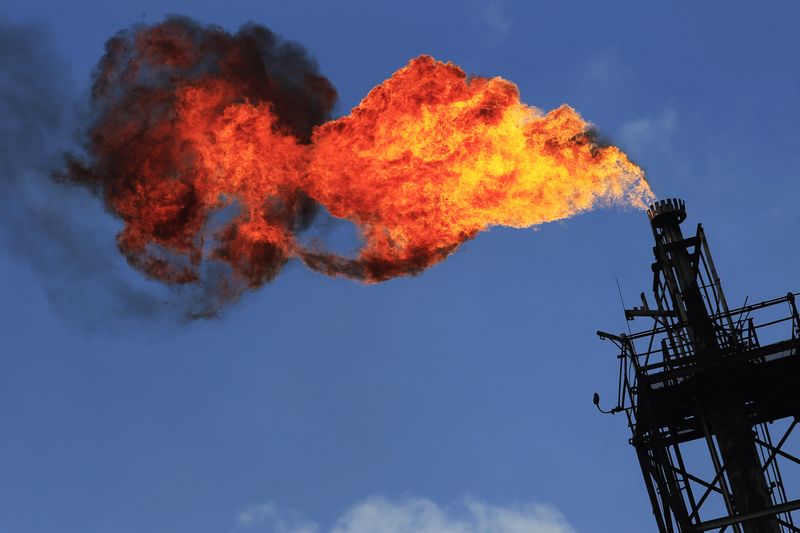
© Reuters
NG
-2.95%
Add to/Remove from Watchlist
Add to Watchlist
Add Position
Position added successfully to:
Please name your holdings portfolio
Type:
BUY
SELL
Date:
Amount:
Price
Point Value:
Leverage:
1:1
1:10
1:25
1:50
1:100
1:200
1:400
1:500
1:1000
Commission:
Create New Watchlist
Create
Create a new holdings portfolio
Add
Create
+ Add another position
Close
Investing.com — U.S. natural gas inventories rose by 54 billion cubic feet, or bcf, last week, the Energy Information Administration, or EIA, said Thursday, announcing a build historically lower for this time of year in an oversupplied market that needs to see fewer stockpile increases and more demand in order to rally.
The build in gas storage for the week ended April 28 compares with the 72 bcf increase during the same week a year ago and a five-year (2018-2022) average build of 78 bcf.
Notwithstanding that, the prior week to April 21 also saw a 79 bcf rise, which was way above the 42 bcf injection during the same week a year ago and a five-year average increase of 43 bcf.
The latest build pushed up total gas stored in underground caverns in the United States to 2.063 trillion cubic feet, or tcf. That was 33% higher from the year-ago level of 1.556 tcf and 20% above the five-year average of 1.722 tcf.
“If a hot summer emerges and power demand competes with storage as is expected, storage being in such a healthy position now will ensure that a scenario like last year’s race to fill storage will not happen this year,” said analysts at Houston-based energy markets advisory Gelber & Associates.
“Fundamentals have been largely unchanged with weather slightly warming, production is still slightly depressed, but is expected to return to normal over the weekend, and LNG exports are still showing slight weakness.”
The most active June gas contract on the New York Mercantile Exchange’s Henry Hub was down 6.9 cents, or 3.2%, to $2.101 per mmBtu, or million metric British thermal units, after the release of Thursday’s inventory data.
A year ago, the benchmark gas contract on the Henry Hub was trading at between $7 to $8 per mmBtu, with a high of above $9 on fears of a supply squeeze heightened triggered by the Russia-Ukraine conflict.
Source: Investing.com




























